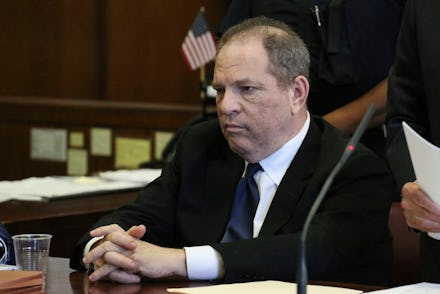What is the new “Weinstein clause” and how does it affect the business world?

Oct. 5 might not be a day that lives in infamy — at least not yet — but a seismic culture shift began that day in 2017, when the New York Times published its exposé on Hollywood producer Harvey Weinstein, unveiling three decades of alleged sexual misconduct as well as settlements with at least eight women related to sexual harassment and unwanted physical contact.
Eventually, over 80 women — including actresses Gwyneth Paltrow, Salma Hayek and Ashley Judd — came forward to accuse Weinstein.
The repercussions of the Weinstein investigation weren’t just felt in Hollywood, where Weinstein was swiftly fired and his company dissolved, but in offices across the United States and around the world as more and more women felt empowered to come forward with stories of sexual harassment at the hands of other powerful executives.
On social media, women shared their stories with a #MeToo hashtag that underscored the ubiquity of harassing behavior. Bad businessmen were cast out and companies doubled down on sexual harassment training.
It’s been less a year since the reckoning began, and yet another consequence has revealed itself: A Bloomberg Businessweek report found that in many mergers and acquisitions in 2018, buyers have added what’s become known as the “Weinstein clause.”
Such a clause legally requires a company to vouch for the behavior of its executives, guaranteeing the buyer won’t wind up with a scandal on their hands that may impact future earnings.
Weinstein’s company filed for bankruptcy following the headlines; after model Kate Upton accused Guess co-founder Paul Marciano of harassment, company shares dropped 18% in one day, a loss of more than $250 million in market value. When the Wall Street Journal reported several employees had accused Wynn Resorts founder and CEO Steve Wynn of misconduct, the company lost $3.5 billion in a week.
Bloomberg Businessweek found that some deals even require sellers to put money in escrow so buyers can recoup part of their investment if executive misconduct is found after the contract is signed.
The level at which buyers begin to care about management’s behavior varies based on the contract, writer Nabila Ahmed reported. For example, when Del Frisco’s Restaurant Group Inc. purchased Barteca Restaurant Group in June, it wanted to know if any managers supervising eight employees or more had been accused of sexual harassment since Jan. 1, 2015.
An alleged sexual predator is finally a liability.
One of the most unfortunate realizations of the past year has been the extent to which companies have protected harassers as long as they continued bringing in huge amounts of money. Consider Bill O’Reilly, who paid out around $45 million in settlements to his accusers. His employer, 21st Century Fox, acknowledged it was aware of these payments.
Many Disney employees have said (anonymously) that Pixar’s chief creative officer John Lasseter was known for allegedly groping and kissing his female employees in full view of others.
But now, an alleged sexual predator is finally a liability. Letting sleazy people hold the top spots at a company suggests the company is not financially sound or responsible. The “Weinstein clause” demonstrates, again, how deep the effects of the mogul’s alleged misconduct go — and how far we are from seeing the end of his impact on culture, society and business.